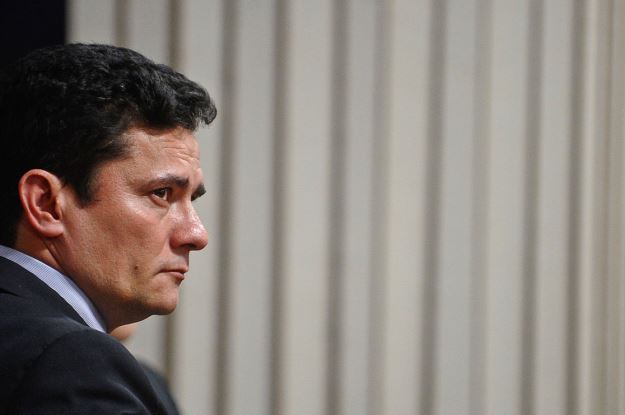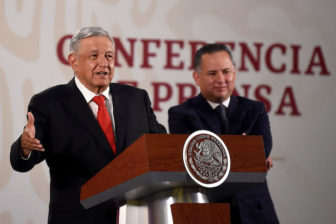Editor’s note: Moro is the federal judge overseeing “Operation Car Wash,” the historic investigation of corruption at Brazil’s state-run oil company Petrobras. This piece first appeared in Portuguese in Exame magazine, and can be seen here. The English translation has been lightly edited for clarity, context and length.
More than two years after the start of the critical phase of the so-called Operation Car Wash, now is a timely moment for some reflections. These reflections do not necessarily apply to cases where judgment is still pending since, in a penal process, there are particular circumstances and criminal responsibility always depends on specific proof.
Looking at the cases already judged, there have been to date about 10 rulings which were specifically related to crimes of corruption in contracts at Petrobras. In seven of them, the convicted were executives of the biggest construction companies (as corruptors), executives of Petrobras (as the beneficiaries of undue benefits) as well as intermediaries between these two groups.
But the criminal scheme that contaminated Petrobras goes well beyond the corruption of those at the company. In at least two cases there was a conviction of ex-federal legislators who had received benefits from bribes agreed with Petrobras officials. In a third case, it was proven that money from the bribe had been directed to illicit financing of a political party.
In a broader context, these ongoing disclosures had consequences beyond the penal process. Petrobras, assuming a posture of general denial during the first semester of 2014, when it did not recognize any problem of governance, gradually started to admit the crimes. This culminated in official recognition, in its 2015 report, of losses from corruption of nearly 6 billion reais ($1.7 billion in today’s dollars).
Some of the construction companies began, to their credit, to recognize their responsibility. Two large companies reached leniency deals with the Federal Public Ministry, committing to reveal illicit acts, abandon criminal practices, implement efficient systems of compliance and compensate public coffers with more than 1 billion reais.
However, this general summary doesn’t do justice to the drama of what happened. The most disturbing element was evidence that corrupt practices had become “naturalized” in the sphere of public contracts. The main indication is the fact that bribes were negotiated based on previously established rates, with a fixed percentage calculated on top of contracts – the so-called “X percent rule.”
As a rule, the payment was 1 percent to 2 percent of bribes on top of contracts. In similar fashion, there were pre-existing rules regarding distribution of bribes among intermediaries, Petrobras officials and politicians or parties. To illustrate this, here is an excerpt from the interrogation of someone involved in the criminal scheme:
PUBLIC MINISTRY: “When I asked about the payment of bribes, this expression ‘rule of the game’ that you used, exactly how did it happen?
PERSON BEING DEPOSED: “The rule of the game I referred to is that there were no contracts at Petrobras in which there wasn’t an agreement for payment of these values to the directorate of supply and the directorate of engineering and services.”
PUBLIC MINISTRY: “This was already a known rule, it was a known practice?”
PERSON BEING DEPOSED: “It was a rule of the market.”
Another sign of the scope of these schemes is the lack of more concrete answers regarding why bribes were paid. Even executives who confessed to payment had difficulty in clarifying why they acted that way, just as officials at Petrobras who confessed denied they had granted more concrete benefits to the corruptors.
To further illustrate the magnitude of corrupt practices, a manager at Petrobras, after reaching a deal to collaborate with the authorities, returned, just by himself, nearly $97 million in bribes that he kept in secret accounts abroad. Another disconcerting fact was evidence that some people had a record of involvement in other criminal practices…
All of these disturbing facts allow us to conclude that an environment of systemic corruption was uncovered. Corruption, as an isolated crime, exists in any part of the world. But systemic corruption, the payment of a bribe as a rule of the game, isn’t really that common, and it represents a severe degeneration of public and private customs.
The cost of systemic corruption is enormous, not just for public coffers but for the economy and society in general. The most obvious is the cost of the bribe, which can reduce the profit margin for private entities or, more commonly, is transferred to public contracts, generating sizeable impacts for public budgets.
Investors Scared Away
More than that, though, the need to generate funds for bribes in systemic corruption schemes can affect investment decisions, generating even bigger losses.
Perhaps some bad investments made by Petrobras during the period of systemic corruption can be explained not as the product of a bad but well-intentioned choice but, instead, as a choice by the involved parties to generate bribes rather than take the best decision from an economic point of view for the company.
Extraordinarily high increases in costs of projects, such as that of the Abreu e Lima Refinery, from around $2 billion to $18 billion, can perhaps be understood in this context. Systemic corruption schemes chase away local and foreign investors. If the market is not clean, if it’s possible to cheat with bribes, potential investors that don’t want to become involved in criminal practices will be pushed away.
Above all, systemic corruption schemes are damaging because they impact confidence in the rule of law and in democracy. If they law doesn’t apply to everyone, there is a progressive erosion of trust in democracy, with worrying collateral effects. Faced with a revelation of systemic corruption, what should be done? The judicial system must function.
Crimes that are uncovered and proven must, respecting due process, be punished. Justice functions when the innocent person goes home and the guilty person goes to prison. The result should not depend on the economic or political conditions of the accused. There is still much to be done to advance in this respect.
Yet Operation Car Wash, just as other recent cases, reveals that much can be done, even in the current system, as long as the problem is treated with seriousness. Justice cannot be make-believe, with cases that never end and guilty who are not punished.
The adequate functioning of the criminal justice system is a necessary, though not sufficient, condition to eliminate systemic corruption. It’s necessary that other public institutions, executive and legislative, adopt public policies for the prevention and combat of corruption. Systemic corruption cannot be only a problem for the judiciary.
The government is the main responsible party for creating a political and economic environment free of systemic corruption. The government, with greater visibility and power, teaches by example. Corrupt parties should be expulsed from public life.
Better laws can be approved as much to hone the system of criminal justice as to increase the transparency and predictability of relations between the public and private sector, as well as to reduce incentives and opportunities for corrupt practices. Freedom of the press and access to information are essential.
The control of the governors by the governed demands citizens who are well-informed regarding the management of public life. Private initiative has a relevant role. Corruption involves those who pay and those who receive. Both are guilty …
The Role of the Private Sector
Companies must do their homework: Saying no to the payment of a bribe, implementing different mechanisms of internal control and denouncing requests or demands for payment of a bribe. It’s also important to act collectively so that companies involved in corrupt practices are isolated from the market instead of assuming a preeminent position.
Much can be done by private initiative, independent from the government. Two examples from outside Brazil:
First, the famous “Operation Clean Hands,” the older Italian sister of Operation Car Wash, started with a businessman’s accusation that a director of a philanthropic institution in Milan had solicited a bribe in a public contract. It was the courage of a businessman that gave the initial push to the broadest and deepest judicial action ever known against a scheme of systemic corruption.
Second, another example from the same country. In Sicily, where business suffered daily extortion from Cosa Nostra, businesses small and large joined forces in organizations such as Addiopizzo (“Goodbye, bribe”) and collectively and publicly refused to pay bribes.
Much can be done, and it’s important to keep in mind that systemic corruption is a product of institutional and cultural weakness. No country is predestined to live with systemic corruption, since it’s not a natural phenomenon. Discovering it, even if it generates impacts in the short term, is not part of the problem but part of the cure. Once systemic corruption is discovered, necessary public policies should be adopted to overcome it. The problem cannot be resolved by sweeping it under the rug.
Perhaps more than any other case in the past, because of the dimension of the facts that have been uncovered, Operation Car Wash provides Brazil with the opportunity to take the necessary steps to overcome this shameful practice. To do this, it’s necessary for action from public and private institutions. Acting together, it’s possible that systemic corruption will become a sad memory from a somber past, and that it will no longer represent the future of the country.
—
Moro is a federal judge based in Curitiba.








